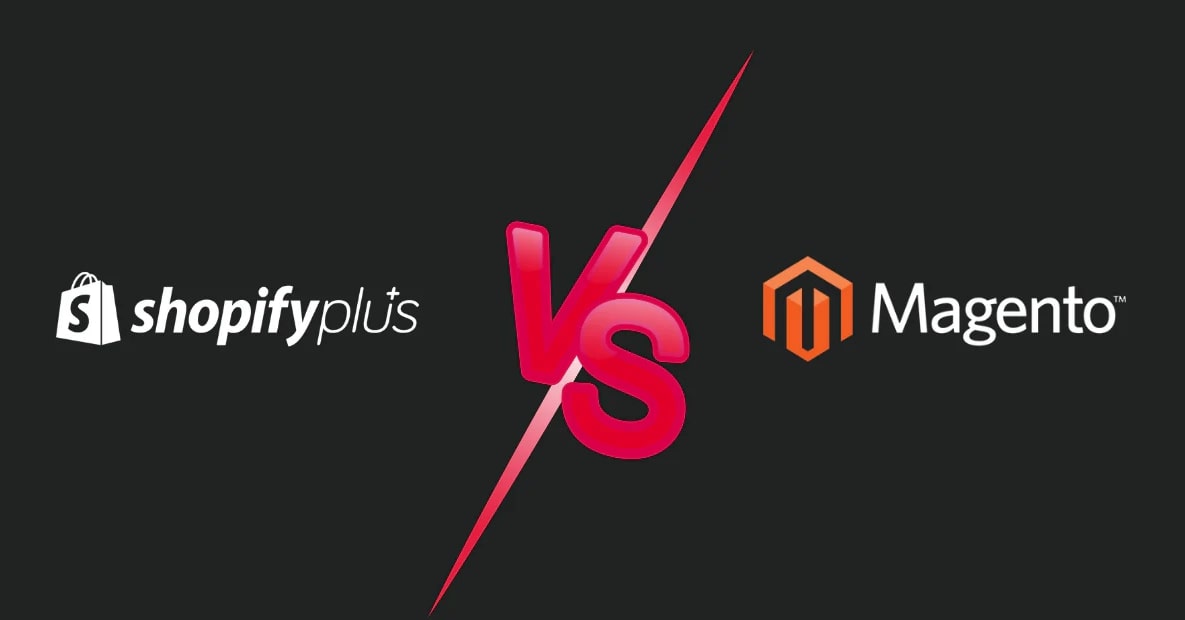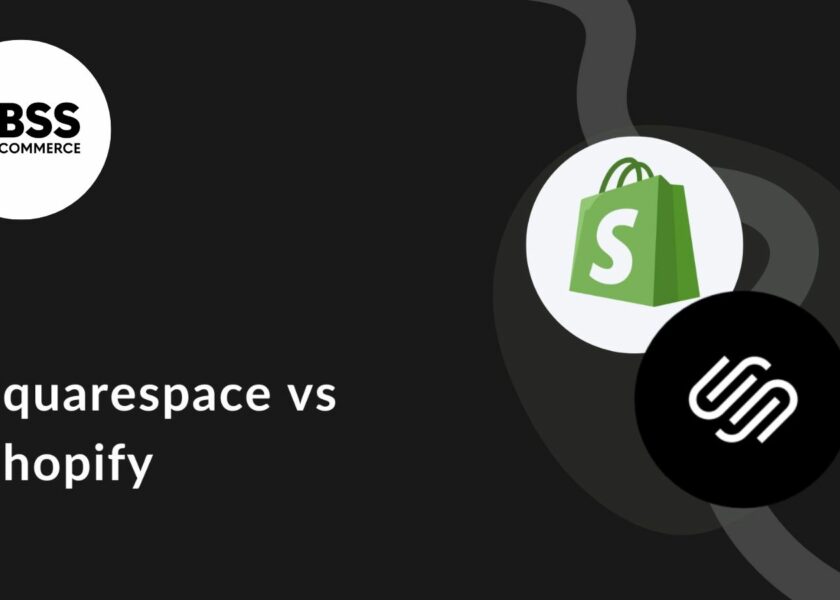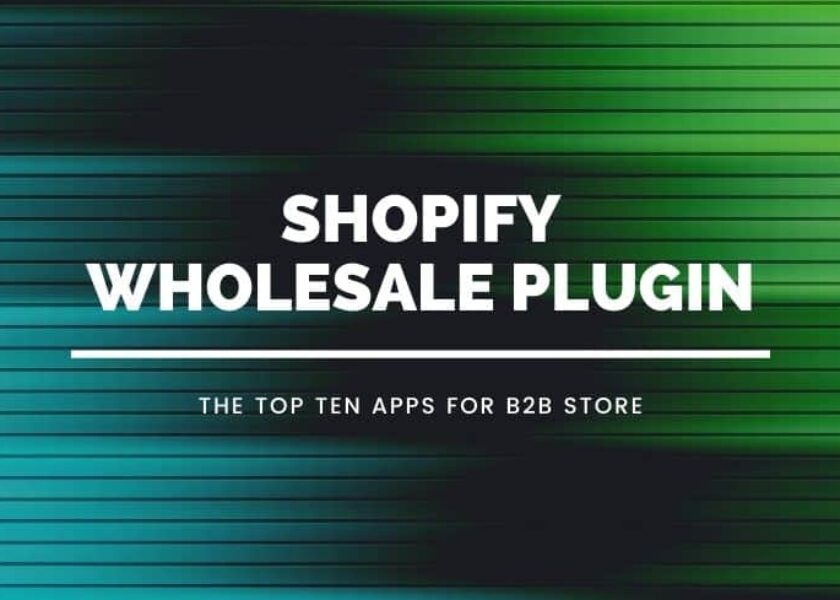Shopify Plus vs Magento: Which Platform Is Better in 2024?

When choosing an eCommerce platform for your enterprise business, you need to really look at the differences between Shopify Plus vs Magento (Adobe Commerce). They may seem similar in price, features and capabilities but they are actually very different. So online businesses need to really dig into the pros and cons of each before deciding which platform to use for their eCommerce.
This post will break down Shopify Plus vs Magento (Adobe Commerce) so you can decide which one is best for your business.
Contents
Shopify Plus vs Magento: Background Information
Below is a quick comparison table of Shopify Plus vs Magento:
| Feature | Shopify Plus | Magento (Adobe Commerce) |
| Type | SaaS | Open-source |
| Target Audience | Mid-market to enterprise | Mid-market to enterprise |
| Ownership | Shopify Inc. | Adobe |
| Launch date | 2006 | 2008 |
| Focus | User-friendliness, scalability, omnichannel | Customization, flexibility, scalability |
| Pricing Model | Subscription-based | Licensing, hosting, development |
Overview of Shopify Plus
Shopify Plus is the enterprise version of Shopify, launched in 2014, and is gaining popularity among both enterprise and mid-sized businesses. Instead of investing in expensive infrastructure and development, you can focus on strategy, customer engagement, social media influence, and data-driven marketing.
Shopify Plus is a fully hosted SaaS solution that can handle any volume, so high-volume merchants can focus on their business not IT. Built on the same infrastructure that supports millions of Shopify merchants, Shopify Plus can handle flash sales, Black Friday events, and big daily traffic.
And Shopify Plus customers get all the benefits of Shopify’s architecture. High growth high volume merchants get scalability, reliability, and flexibility without the complexity, long timelines, and costs of traditional on-premise solutions.
Best For: Shopify Plus is an excellent choice for large enterprises that regularly sell hundreds of thousands of products and generate annual revenues exceeding $1 million. In essence, Shopify Plus is perfect for businesses that have outgrown the standard Shopify platform and require a more robust solution to support their growth and ambitions.

Pros and Cons of Shopify Plus
Pros of Shopify Plus
- User-friendliness: Intuitive interface, making it easy to manage the store.
- Robust app ecosystem: Extensive app marketplace for additional functionalities.
- Strong support: Dedicated support team for enterprise-level businesses.
- Customization: Offers more customization options compared to standard Shopify plans.
- Global reach: Supports multiple currencies and languages.
Cons of Shopify Plus
- Cost: Higher pricing compared to standard Shopify plans.
- Limited control over design: While customization options are available, they are still restricted compared to platforms like Magento.
- Transaction fees: Shopify Payments might have higher transaction fees compared to other payment gateways.
- Dependency on Shopify: Reliance on Shopify’s infrastructure and updates.
>> Explore more related topics:
Overview of Magento (Adobe Commerce)
Adobe Commerce (formerly Magento) is a powerful and flexible open-source eCommerce platform that lets businesses of all sizes create amazing online shopping experiences. Acquired by Adobe in 2018 it’s part of the Adobe Experience Cloud and integrates with other marketing and analytics tools.
Best For:
- Large and enterprise businesses: Magento can handle complex and high volume eCommerce. It can manage large product catalogs, multiple stores and international markets so is the perfect solution for businesses that need advanced functionality and customization.
- B2B eCommerce: Magento handles complex pricing models, negotiated quotes, custom catalogs, multiple buyer accounts and integrates with enterprise resource planning (ERP) systems. This is perfect for B2B businesses including wholesalers and manufacturers.
- Global businesses: Magento can handle large product catalogs, high transaction volumes and manage multiple global regions. For stores targeting multilingual customers it can do product localization and translate description fields, metadata and product names.
Pros and Cons of Magento
Pros of Magento
- Scalability: Handles big traffic and fast growth.
- Customization: Lots of customization options to create your own experience.
- B2B and B2C: Supports both.
- Open-source: Good foundation for development and customization.
- SEO: Built with SEO in mind.
- Rich features: Product catalog, order processing, payment gateways, shipping options and more.
- Large community: Big developer community for support and resources.
- Integrates with: Marketing, CRM and ERP systems.
Cons of Magento
- Complex: Requires technical skills to implement and maintain.
- Cost: Enterprise plans can be expensive, development, hosting and maintenance.
- Performance: Hard to optimize for performance without expert tuning.
- Hosting: Hard to find a good hosting provider due to the platform’s resource hungry.
Shopify Plus vs Magento: Full Comparison for Each Elements
Choosing the right eCommerce platform for your business is a big decision. Shopify Plus vs Magento (now Adobe Commerce) are two top contenders, each with its pros and cons. This full comparison will go into details of features, themes, security, pricing and more to help you decide what’s best for your business:
| Criteria to Compare | Shopify Plus | Magento (Adobe Commerce) |
| Pricing & Plans | Shopify Plus pricing is determined by the duration of the business contract. The monthly fee begins at $2,500 for a one-year agreement and $2,300 for a three-year agreement. This pricing includes standard setups and integrations. | Magento offers two primary plans: Commerce Pro and Managed Services. You need to get in contact with the Magento team to get customized pricing for Adobe Commerce (Magento). |
| Themes & Templates | Shopify Plus offers a selection of over 200 themes, including 13 free themes and over 200 premium themes, with prices ranging from $0 to $450. | Magento (Adobe Commerce) offers 9 free design themes, and an intuitive personalization editor. |
| Highlight Features | The main feature of utilizing Shopify Plus lies in its user-friendly nature. Moreover, users have access to a vast array of third-party applications available in the Shopify App Store, which can be seamlessly integrated into their websites.
Another noteworthy feature of Shopify Plus is its intuitive data reporting interface, which simplifies the process of generating analytics reports. |
Magento allows to use a single catalog across various shops, categorize customers, and implement diverse pricing structures, such as wholesale and retail rates.
Magento Commerce 2 includes essential features like international currency support, security measures, analytical reporting, and app integrations, it also offers extensive customization options. |
| Ecosystem | Shopify Plus has successfully attracted millions of customers to its platform, fostering a vibrant community of thousands of Shopify Experts. To meet the demands of large retailers, they established the Shopify Plus Partner program, an acclaimed and meticulously curated selection of agencies, solutions, and technical providers. | With nearly 280,000 Magento community sites, the sheer number of developers and architects experienced with Magento 1.x is impressive. |
| Global & Omnichannel | Shopify Plus users can showcase, sell, and oversee their products on more than 20 sales channels, including Facebook, Messenger, Pinterest, and Instagram, along with well-known marketplaces such as eBay, Houzz, Ebates, and Wanelo. | Magento presently does not offer integration with popular social media platforms and marketplaces. As the variety of channels continues to expand, on-premise solutions such as Magento risk becoming outdated. |
| Apps and Extensions | Shopify Plus, as a Software as a Service (SaaS) solution, offers a wide array of pre-approved applications at an affordable price to assist merchants, including:
|
Unlike Shopify Plus, Magento Commerce does not provide specialized applications designed specifically for large enterprises. However, there remains a wide array of choices, with hundreds of third-party extensions accessible on the Magento Marketplace, catering to both self-hosted and cloud-hosted solutions. |
| Security | Shopify Plus ensures that your website is hosted and secured in strict adherence to Level 1 PCI DSS standards. This includes:
|
Magento offers the capability to create PCI-compliant storefronts; however, it is the vendor’s responsibility to ensure the safety and security of their site. Being an open-source platform, Magento is also vulnerable to malware attacks. Security vulnerabilities within the software are a constant concern. |
| Support and Community | Shopify Plus provides the most extensive support network in the industry, featuring a specialized team of launch engineers, solution engineers, front-end developers, and dedicated support personnel to ensure a seamless, rapid, and hassle-free transition. | In contrast to Shopify Plus, Magento provides technical support, similar to many on-premise solutions. Magento community is made up of a diverse group of developers worldwide who actively contribute their knowledge online. If you have a question, it is likely that you will find an answer readily available on the internet. Furthermore, Adobe Commerce DevDocs offers a wealth of useful resources for users. |
Pricing & Plans
Shopify Plus – Pricing & Plans
Shopify Plus pricing is based on the length of the business commitment. The monthly fee is $2,500 for a 1-year agreement and $2,300 for a 3-year agreement. This includes standard setup and integrations. For high-volume businesses the flat rate will convert to a variable platform fee based on industry and profit margin.
In addition to all the features available in standard Shopify plans, Shopify Plus accounts offer the following benefits:
- Unlimited staff accounts.
- Up to 200 inventory locations.
- Up to 100 themes.
- 20 POS Pro locations.
- Access to the Shopify Plus Partner Program.
While traditional Shopify plans are generally more affordable, both versions of the platform deliver value tailored to their respective target audiences.
>> Read more: Shopify Pricing Plans: Which Is The Right Choice For Your Store
Magento – Pricing & Plans
Magento provides a user-friendly drag-and-drop page builder. To obtain a quote, direct communication with the company is necessary, as they offer two primary plans: Commerce Pro and Managed Services.
- Commerce Pro is a comprehensive solution tailored for businesses of any scale. It allows users to personalize their websites while benefiting from the Adobe Commerce Application, robust security features, and cloud infrastructure.
- Managed Services is a cloud based offering that gives you access to specialized expert resources, including Advanced Support Engineers and Customer Success Engineers. These additional services allow you to handle complex issues and get premium technical support so you can deliver a better customer experience.
Themes and Templates
Shopify Plus – Themes and Templates
Shopify Plus has over 200 themes to choose from, 13 free and over 200 premium, priced from $0 to $450. You can filter by industry, catalog size and features. Each theme comes with theme settings to customize your site, add banners or change color schemes, no HTML or CSS required.
Once you’ve chosen a theme, customization is easy, whether through the website builder or by adding HTML and CSS code.

Magento – Themes and Templates
Magento (Adobe Commerce) has a lot of flexibility and customization options via a drag-and-drop builder, 9 free design themes and a personalization editor. With hundreds of plugins and add-ons you can manage every aspect of your site, from landing pages to inventory and expanding your online business.
Customer segmentation allows you to show content based on customer location, cart items and purchase history so you can engage with different audiences. And its product recommendation engine can suggest products based on customer behavior and product attributes.

Highlight Features
Shopify Plus vs Magento 2 (Adobe Commerce) have the same features and functionality to run an eCommerce store for enterprise level businesses. But each has its own strengths in different areas
Shopify Plus – Highlight Features
The main advantage of using Shopify Plus is that it’s user friendly. The subscription fee includes technical support and hosting so you can launch your store fast and easy and reduce maintenance costs.
Shopify Plus doesn’t allow you to modify the core code of your store but it’s a solid and powerful platform.
Plus users have access to a huge number of third party apps in the Shopify App Store which can be installed on their website. These apps can help with payment processing, security, marketing and shipping.
If there’s no ideal third party app, users can build custom features through their own apps using the Shopify API. Those without coding skills can use the Shopify Partners program or hire a freelancer.
Another cool feature of Shopify Plus is the data reporting interface which makes it easy to generate reports. Shopify Plus users can access all the reports Shopify has to offer and get insights into their business.
In summary Shopify Plus is great for small enterprise businesses who want to minimize hosting and IT costs and for mid-sized businesses who want to focus on growing their eCommerce without the technical headaches.
Magento – Highlight Features
Magento distinguishes itself through its robust multi-shop and multi-source inventory functionalities. This platform is designed to assist businesses in managing numerous warehouses, whether they are located nationally or internationally.
Magento is particularly beneficial for B2B enterprises, allowing them to use a single catalog across various shops, categorize customers, and implement diverse pricing structures, such as wholesale and retail rates.
While Magento Commerce 2 includes essential features like international currency support, security measures, analytical reporting, and app integrations, it also offers extensive customization options. The foundational code of a Magento store can be modified to meet the specific requirements of a business.
It is important to note that the high level of customization available in Magento may result in a more costly and time-intensive setup and maintenance process compared to Shopify Plus. Additionally, as a Platform as a Service (PaaS), it necessitates independent web hosting, which can further increase expenses unless one opts for Adobe Commerce Cloud.
Nevertheless, business owners seeking IT assistance will likely find it easy to locate developers experienced with Magento.
Ecosystem
Shopify Plus – Ecosystem
Shopify Plus has brought in millions of customers to the platform and has a community of thousands of Shopify Experts. To support large retailers they created the Shopify Plus Partner program, a handpicked and curated list of agencies, solutions and technical providers. This program includes:
- Solutions partners: design and development experts focused on Shopify Plus themes, app integration and customization.
- Technology partners: eCommerce tools and integrations that add to the capabilities of Shopify Plus for our merchants.
- Agency partners: full service agencies offering creative, marketing and development services.
Magento – Ecosystem
One of the biggest advantages of Magento has always been its ecosystem, with many systems integrators and certified developers. With nearly 280,000 Magento community sites there are a lot of developers and architects experienced with Magento 1.x.
But Magento 2 changes that. Big changes to the architecture and the need for advanced technical skills has affected this ecosystem and there are now noticeable gaps in support, expertise and implementation.
Global and Omnichannel
Shopify Plus – Global and Omnichannel
More than ever merchants need to reach customers and early adopters on the channels they already use. To help with this Shopify allows you to sell across multiple social networks, blogs, apps and 3rd party marketplaces.
Shopify Plus users can show, sell and manage products on over 20 sales channels including Facebook, Messenger, Pinterest and Instagram as well as popular marketplaces like eBay, Houzz, Ebates and Wanelo.
The Shopify Sales Channel SDK allows you to add commerce to any mobile app, marketplace or website and connect your audience to millions of products in their favorite environment. Shopify handles the complexity including payments, shipping, taxes, inventory and analytics.
With the Buy Button approach from Shopify you can add eCommerce to any website with just a small piece of code. This allows you to add embedded products, collections and even a shopping cart on-site in minutes. The JavaScript Buy SDK is a lightweight library that lets you access products and collections from your store, add to cart and checkout.
Magento – Global and Omnichannel
Magento doesn’t currently have integrations with popular social media platforms and marketplaces. As more channels emerge, on-premise solutions like Magento will become outdated. In an omnichannel retail environment managing individual integrations with Magento will cost you a lot.

If you want to sell in multiple currencies you need to create new currency in a new store view on Magento which means more views to manage. Managing an international or global store natively is tricky. And switching currencies on the platform is only possible through 3rd party apps.
Apps and Extensions
Shopify Plus vs Magento provide a wide range of add-ons, extensions, and application integrations, including all major payment processors, security solutions, marketing software, product feed optimization applications, and more.
Shopify Plus – Apps and Extensions
Shopify Plus, as a Software as a Service (SaaS) solution, offers a wide array of pre-approved applications at an affordable price to assist merchants. For those experiencing significant growth, advanced Shopify Plus applications are available, providing enhanced support:
- Shopify Flow: This eCommerce automation platform optimizes tasks and concepts within your store and across various applications, enabling you to concentrate on expanding your business.
- Launchpad: A comprehensive scheduling tool designed for product visibility, Shopify Scripts, themes, and discounts, ideal for automating promotional campaigns such as Black Friday and Cyber Monday.
- Script Editor: A unique application for Shopify Plus merchants that allows the implementation of custom logic to tailor the customer checkout experience through line item scripts, shipping scripts, and payment scripts.
- Transporter: Tools for data migration that facilitate the transition to Shopify Plus, although technical expertise may be required to convert data from legacy platforms into Shopify-compatible CSV files.
Magento – Apps and Extensions
Unlike Shopify Plus, Magento Commerce does not provide specialized applications designed specifically for large enterprises. However, there remains a wide array of choices, with hundreds of third-party extensions accessible on the Magento Marketplace, catering to both self-hosted and cloud-hosted solutions.
Shop Now: BSS Commerce’s premium extensions for Magento – Unlock new possibilities for your online store

Security
Shopify Plus – Security
Shopify Plus ensures that your website is hosted and secured in strict adherence to Level 1 PCI DSS standards. This encompasses:
- Establishing a secure network
- Safeguarding cardholder information
- Implementing a vulnerability management program
- Enforcing robust access control measures
- Conducting regular network monitoring and testing
- Upholding an information security policy
While many eCommerce platforms use SSL encryption to safeguard customer data during the checkout process, Shopify extends this protection throughout the entire online experience. Once your certificate is activated, all traffic will seamlessly transition from HTTP to encrypted HTTPS.
Magento – Security
Magento can create PCI compliant stores but it’s up to the vendor to ensure the security of their site. PCI compliance can be expensive and time consuming. You are responsible for securing your server data which can take you away from core business activities.
As an open source platform Magento is also vulnerable to malware attacks. Security vulnerabilities in the software is a constant concern. In 2015 over 10,000 Magento sites were hacked by Guruncsite malware and Google blacklisted over 8,000 stores in just 3 months.
Support and Community
Shopify Plus – Support and Community
Shopify Plus provides the most extensive support network in the industry, featuring a specialized team of launch engineers, solution engineers, front-end developers, and dedicated support personnel to ensure a seamless, rapid, and hassle-free transition. This support begins with migration and launch and continues beyond that:
- Each new project is assigned a launch engineer who acts as the technical liaison for migration and re-platforming efforts.
- The merchant acceleration team frequently develops exclusive training programs tailored for Shopify Plus merchants.
- Both in-person and digital meetups ensure that you are never alone in your scaling journey.

Magento – Support and Community
In contrast to Shopify Plus, while Magento provides technical support, similar to many on-premise solutions, once you obtain a license, you are primarily responsible for managing the system independently. To ensure continuous expertise regarding the platform and your deployment, engaging a third party agency or integrator is necessary.
In addition, Magento community is made up of a diverse group of developers worldwide who actively contribute their knowledge online. If you have a question, it is likely that you will find an answer readily available on the internet. Furthermore, Adobe Commerce DevDocs offers a wealth of useful resources for users.

Wrapping Up – Shopify Plus vs Magento: Which One is Better?
The differences between Shopify Plus vs Magento 2 should now be evident through our detailed comparison. Here’s the verdict:
Shopify Plus is for small to medium-sized businesses and startups because of the low initial and ongoing costs, merchant-centric approach, and less technical and maintenance overhead. Shopify Plus is for those who want a lot of third-party apps, add-ons and extensions and the ability to build custom apps.
On the other hand, Magento and Adobe Commerce have a lot of services and features but you need to hire Magento developers. Although Adobe Commerce has a high upfront cost you can start with the free Magento Open Source and then upgrade to Adobe Commerce or Adobe Commerce Cloud when you are ready.
Lastly, visit our BSS Commerce Shopify blog for a wealth of engaging eCommerce tutorials, tips, and strategies.
Furthermore, should you require a reliable Shopify Plus web development service for your online store, do not hesitate to reach out to us for more details, we’re pleased to help you. We provide the full-service Shopify Plus development from strategy, plan, design, development, and maintenance.





